
Scientists say drinking coffee gives ‘special boost’ to the brain
If you’re anything like us, the first coffee of the day is the only thing that can get us up on a morning – and it turns out, there’s real science behind it. Everyone knows that coffee can give us a welcome caffeine hit, but it’s now been revealed that the drink also gives us an extra ‘special boost’ too. Scientists have claimed that the act of drinking a cup of joe gives the body a lift, making us more alert, which can’t be replicated merely with caffeine. In fact, new research shows that drinking hot coffee activates additional areas of the brain. Sign up to our free Indy100 weekly newsletter Scientists from the University of Minho in Portugal and elsewhere looked into the effects of coffee outside of just caffeine content as part of a study – and they found that plain caffeine didn’t have the same impact. In fact, a cup of coffee also influenced working memory and goal-directed behaviour. “There is a common expectation that coffee increases alertness and psychomotor functioning. When you get to understand better the mechanisms underlying a biological phenomenon, you open pathways for exploring the factors that may modulate it and even the potential benefits of that mechanism,” study co-author Nuno Sousa explained. Experts said that drinking coffee actually increased the connectivity in the brain’s more advanced nerve network controlling vision, and other parts involved in working memory, cognitive control and goal-directed behaviour – something not found when participants only took caffeine. Researchers also said that if subjects wanted to not just feel alert but ready to go, caffeine alone might not do the job. “Acute coffee consumption decreased the functional connectivity between brain regions of the default mode network, a network that is associated with self-referential processes when participants are at rest,” study co-author Maria Picó-Pérez said. “The subjects were more ready for action and alert to external stimuli after having coffee,” she added. Have your say in our news democracy. Click the upvote icon at the top of the page to help raise this article through the indy100 rankings.
2023-07-16 23:46

Scientists make surprising discovery that could help boost the global population
Infertility is a problem that afflicts more than a billion people across the world, which is why treatments such as IVF are so important. The procedure (in vitro fertilisation, to use it’s full name) involves the extraction of an egg from the woman's ovaries to be fertilised with sperm in a laboratory and returned to the woman’s womb. The goal is that the resulting embryo will then grow and develop into a foetus, blessing the parent or parents with a baby. However, success rates for IVF – as in, the percentage of treatments that result in a live birth – remain somewhat unencouraging: 32 per cent for women aged under 35; 25 per cent for women aged 35 to 37, with the numbers continuing to drop the older you get, according to the NHS. Nevertheless, a major new study has revealed a striking new finding which could help boost the hopes of countless aspiring mums and dads across the world. Sign up for our free Indy100 weekly newsletter After analysing 3,657 frozen embryos over a period of eight years, researchers in Western Australia found that IVF was much more likely to work when eggs had been harvested in the summer. The team clarified that it didn’t seem to matter when the embryos were transferred to the mother’s womb, just when the eggs were collected. Indeed, the likelihood of babies being born when the eggs had been retrieved in the summer was 30 per cent higher than when they had been retrieved in the autumn, according to the scientists. The team also found that the temperature on the day of egg collection didn’t seem to have an impact on success rates, but the number of sunny hours did. Of the embryos they tested, those harvested on days that had the most sunshine were 28 per cent more likely to result in a live birth compared to the darkest and most overcast days. “Our study suggests that the best conditions for live births appear to be associated with summer and increased sunshine hours on the day of egg retrieval,” the study’s lead, Dr Sebastian Leathersich, of Perth’s King Edward Memorial Hospital, said about the paper, which was published in the journal Human Reproduction. Still, he noted: “There are many factors that influence fertility treatment success, age being among the most important. “However, this study adds further weight to the importance of environmental factors and their influence on egg quality and embryonic development." He further explained: “We effectively separated the conditions at the time of egg collection from the conditions at the time of transfer, demonstrating that environmental factors when the eggs are developing are as, if not more, important than environmental factors during implantation and early pregnancy.” The expert obstetrician and gynaecologist added: “Optimising factors such as avoiding smoking, alcohol and other toxins and maintaining healthy activity levels and weight should be paramount. However, clinicians and patients could also consider external factors such as environmental conditions.” Despite Dr Leathersich and his colleagues concluding that the temperature on the day of egg collection had little bearing on the success of the process, they also found that the temperature on the day of embryo implantation did make a difference. The chances of a live birth rate decreased by 18 per cent when the embryos were transferred on the hottest days (when average temperatures measured between 14.5C and 27.8C) compared to the coolest days (0.1C to 9.8C), and there was a small increase in miscarriage rates, from 5.5 per cent to 7.6. The finding that miscarriage rates were highest when embryo transfer took place on the hottest days is consistent with other studies showing higher rates of miscarriage in the summer months. “This suggests that the negative effects of high temperature are more likely related to early pregnancy rather than egg development,” Dr Leathersich concluded. When it comes to the disparity in success rates between eggs retrieved in summer and autumn, he and his team pointed out that melatonin levels could be at play. Differences in lifestyles between the winter and summer months may also play a role, he and his colleagues acknowledged. "It is possible that there are differences in activity, diet, and lifestyle in different seasons which could underlie the observed differences in live birth rates, though such data were not collected in this study," they wrote. "It is also possible that other environmental factors, including pollutants, may impact clinical outcomes." Whilst the study’s findings are compelling, Dr Leathersich and his team admitted that it did have its limitations. The research was done in hindsight, using eggs that had been frozen, then thawed, so it could not draw watertight conclusions. “Ideally, these findings should be replicated in other sites with different conditions and different treatment protocols to confirm the findings,” Dr Leathersich said. “It would also be interesting to look at the impact of season and environmental factors on sperm parameters, as this could have contributed to our observations.” He added: “We are now planning to analyse this same group of patients using air quality data, as there may be seasonal changes in exposure to harmful pollutants which could negatively affect reproductive outcomes. “Finally, given the huge increase in so-called 'social egg freezing' for fertility preservation and the fact that this group generally have flexibility about when they choose to undergo treatment, it would be very interesting to see if these observations hold true with frozen eggs that are thawed and fertilised years later. “Any improved outcomes in this group could have big impacts for women making decisions about their future fertility, but the long-term follow-up required means it is likely to be some time before we can draw any conclusions for this population.” Have your say in our news democracy. Click the upvote icon at the top of the page to help raise this article through the indy100 rankings.
2023-07-10 23:22

Why you should never drain your pasta in the sink
Pasta lovers are often guilty of draining their pasta water down the sink before adding sauce. But there is an important reason to save your pasta water and it is pretty scientific. Because pasta is made of flour, it releases starch into the cooking water as it boils, creating a white, cloudy liquid that emulsifies sauces it is added to. Emulsification is the process of blending two liquids that would otherwise repel each other ― in the case of pasta, it’s oil and water ― into a smooth, inseparable mixture. Sign up to our free Indy100 weekly newsletter Starchy pasta water is also a thickener, so saving some and mixing it into sauce creates something creamy and thick that won’t ever separate. This makes for a better sauce, so if you ladle some pasta water out before draining the rest you are going to be giving serious chef vibes. With that said, it is time to impress everyone you ever cook for again - just from the simple act of saving a small bit of water. Have your say in our news democracy. Click the upvote icon at the top of the page to help raise this article through the indy100 rankings.
2023-06-26 20:29
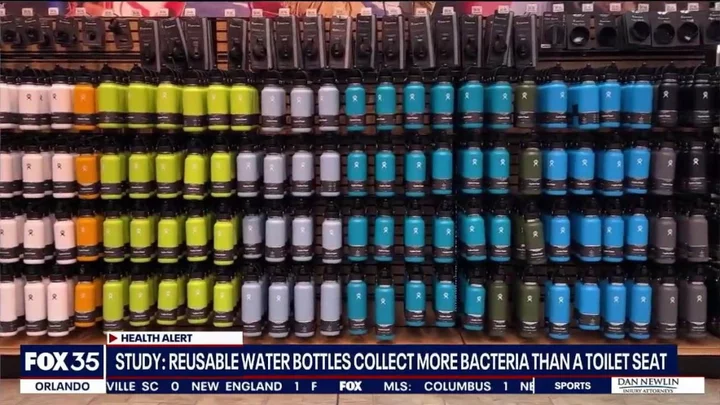
Reusable bottles contain 'more bacteria than toilet seats'
Reusable water bottles tick many boxes. Not only do they help you stay hydrated and help save money, but they also help cut down on single-use plastic. They've almost become a fashion accessory, with chic stainless steel flasks and viral bottles going viral across TikTok. Sign up for our free Indy100 weekly newsletter Trying to hit the NHS-recommended eight glasses of water a day for adults is an excellent idea, of course, but did you know there’s one way your refillable bottle could potentially be detrimental to your health? According to a study from waterfilterguru.com, reusable water bottles contain an average of 20.8m colony-forming units (CFUs) of bacteria, which equates to 40,000 times more than the microbes on a toilet seat. So what might be the consequences if you continuously sip and refill without washing your bottle properly between uses? We asked health experts to talk through the risks… Bottling up bacteria “A common misconception when it comes to reusable water bottle hygiene is that as you’re typically filling it with pure water and it’s only coming into contact with your own mouth, there’s little need to clean it often,” says Dr Donald Grant, senior clinician at The Independent Pharmacy. However, every time you drink from the bottle, you’re transferring bacteria from your mouth, which can then multiply in the container. “Anything that is reusable can be prone to accumulating dirt, dust or debris and, as a result, bacteria,” says private GP Dr Suhail Hussain. “This is exacerbated by the fact water bottles are the ideal environment for harbouring bacteria due to being moist.” Hard-to-reach crevices – for example, inside a screw top or under a flip-up straw – could also develop mould, and then there’s contamination from other sources. “When you store it in a gym bag, for instance, it can pick up bacteria from the interior of the bag or anything else stored in it, while you can also transfer bacteria from your hands to your bottle,” says Grant. “If your bottle has a valve cap, you may need to lift or twist it with your fingers, and this can transfer bacteria you may have picked up from touching other objects or surfaces.” What types of microbes are found in water bottles? “These might be simple commensals such as streptococcus and staphylococcus, which normally live in symbiosis with their host (i.e. us) but can become problematic if they accumulate or the individual is under the weather,” Hussain says. “Bacteria such as E. coli – a common cause of urine and bowel infections – can often colonise the water bottle following repeated handling, such as taking the cap on and off.” These bacteria can potentially cause a variety of issues. “You may become sick and develop gastric illness, such as diarrhoea or vomiting,” Hussain continues. “Gram negative rods – another common bacterium found in unwashed bottles – can lead to urogenital tract infections and pneumonia.” Grant warns: “If there’s a build-up of mould inside the bottle, this can cause allergy symptoms, such as a runny nose, sneezing, or red and itchy eyes. Symptoms might be more severe for someone with asthma.” How often should you wash your reusable water bottle? “To minimise your risk of getting sick, you should ideally clean your water bottle after each use,” Grant says. “As a minimum, you should aim to wash it thoroughly at least a few times a week.” Hot water and washing up liquid are all you need to banish bacteria on a daily. “Fill the bottle with hot soapy mixture and swill around, or leave to soak in a detergent mixture,” Hussain advises. “Remember to pay special attention to lids/caps and screw top regions – use a clean brush [to scrub them].” If you’ve neglected your bottle for a few days and it needs a deeper clean, Grant suggests: “Soak your bottle overnight in a solution of half vinegar and half water. Rinse the bottle and let it dry fully before using it again.” Storage is also important to help minimise nasty microbes. “Where possible, you should keep your water bottle out of germ-rich environments such as your gym locker or sports bag,” Grant says. “You should also avoid filling your bottle with anything other than water, such as protein shakes, energy drinks, or sugar-rich liquids, as sugar can stimulate the growth of bacteria.” Hussain adds: “Don’t leave a water bottle in the sun for long periods or sitting in the cup holder in the car – the mixture of warmth and moisture is likely to make bacterial overgrowth worse.” Have your say in our news democracy. Click the upvote icon at the top of the page to help raise this article through the indy100 rankings.
2023-06-24 17:18
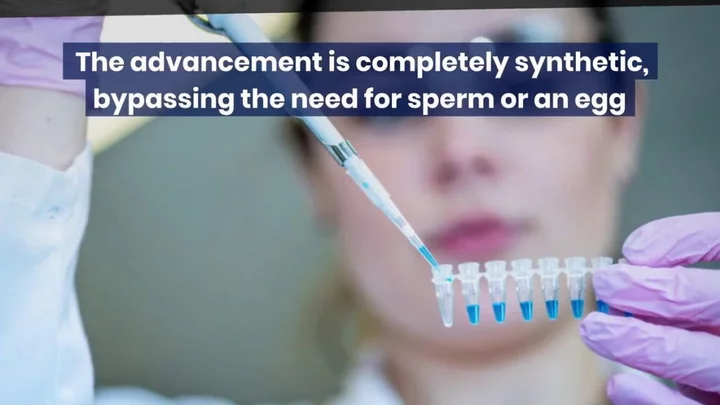
Scientists create human embryo with a heartbeat without using sperm or eggs
Scientists have created a model human embryo to study the first weeks of life, complete with a heartbeat and traces of blood. The synthetic embryo was created with human stem cells and did not require sperm, eggs or fertilisation. It mimics the structure that occurs during the first month of pregnancy. Yet, scientists ensured it was designed to not form a foetus. Researchers involved in the extraordinary project discovered that the model had early stages of developing a brain and beating heart cells, which generally develop after 23 days in a human embryo. It was achieved through embryonic stem cells, which are 'blank' cells from a human embryo. Scientists grew the model in a lab before transferring it to a rotating bottle to act as an artificial uterus, The Guardian reported. Sign up for our free Indy100 weekly newsletter Scientists hope the findings will help them understand more about the impact of genetic disorders and miscarriage. Dr Jitesh Neupane, of the University of Cambridge’s Gurdon Institute, told the publication: "I randomly took my plate under the microscope and when I saw the [heartbeat] for the first time I was scared, honestly. I had to look down and look back again. "It was overwhelming for me. People get emotional when you see the heartbeat." He went on to emphasise that the model is "neither embryos nor are [they] trying to make embryos actually." "They are just models that could be used to look into specific aspects of human development," he continued. The findings are yet to be published in either a preprint or a journal paper. Have your say in our news democracy. Click the upvote icon at the top of the page to help raise this article through the indy100 rankings.
2023-06-19 17:19

An AI robot dog has become an art critic - and poops out his reviews
If AI wasn't advancing at a rapid enough rate, there's now a robot dog art critic in existence - and warning, he judges with his tail. AICC (Artificially Intelligent Critical Canine) has the ability to look around a room as well as move, and he can quickly come up with comments about the pieces. The pooch operates on wheels, and once he's gathered his thoughts, he 'poops' out a piece of paper with his full review. Pretty impressive. Click here to sign up for our newsletters
2023-06-08 23:50
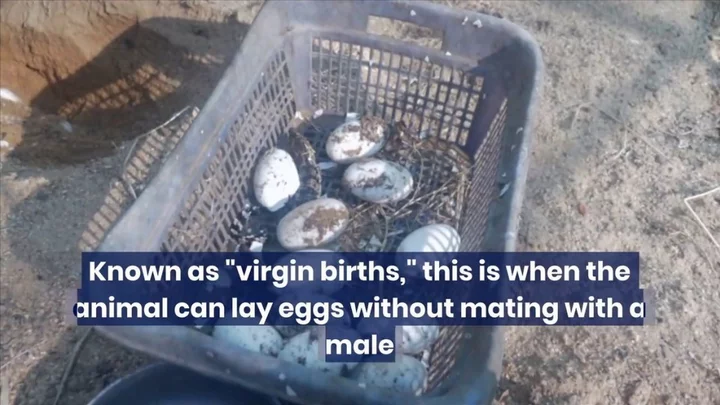
Here's how a crocodile made herself pregnant
A crocodile has made herself pregnant in what is believed by scientists to be a world first. The crocodile at the Costa Rica zoo created a foetus that was 99.9 per cent genetically identical to itself, often known as a "virgin birth." This process typically does not occur with crocodiles but with other species such as birds, lizards, snakes, fish and sharks. Sign up to our free Indy100 weekly newsletter Scientists believe this kind of solo reproduction could be traced back to the dinosaurs, as they suggest the species may have also been capable of this rare method. The latest study was published on Wednesday (June 7) in the Royal Society journal, Biology Letters. Back in January 2018, an egg was laid by an 18-year-old female American crocodile in Parque Reptilania, the BBC reported. The fully formed foetus did not hatch however and was stillborn. Researchers from Virginia Polytechnic Institute and State University, say this is the "first documentation" of this kind of reproduction in this species. Dr Warren Booth who has studied virgin births (parthenogenesis) for 11 years theorised that this reproduction method has not been seen in crocodiles because weren't looking out for this happening. ''There was a big increase in reports of parthenogenesis when people started keeping pet snakes. But your average reptile keeper doesn't keep a crocodile," he noted to the BBC. "This new evidence offers tantalizing insights into the possible reproductive capabilities of extinct archosaurian relatives of crocodilians, notably the Pterosauria and Dinosauria," experts said in the study. Have your say in our news democracy. Click the upvote icon at the top of the page to help raise this article through the indy100 rankings.
2023-06-08 23:48
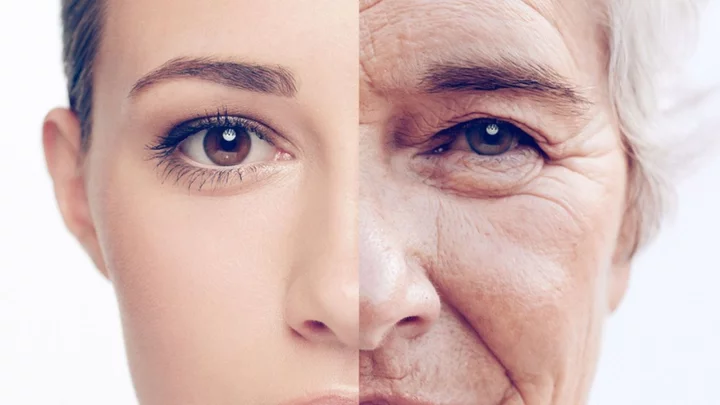
Scientists might have discovered a simple way to stop the ageing process
The feeling of hunger could be a simple way to stop the ageing process, according to a new study. Researchers at the University of Michigan tricked fruit flies into feeling hungry which resulted in the insects living longer – even when they eat their calorie intake. The study - published in Science - suggests that the perception of insatiable hunger alone can generate the anti-aging effects of intermittent fasting. (And since it’s the perception rather than actual hunger, it means the bugs don’t actually have to starve). Sign up to our free Indy100 weekly newsletter "We've sort of divorced [the life extending effects of diet restriction] from all of the nutritional manipulations of the diet that researchers had worked on for many years to say they're not required," physiologist Scott Pletcher said, as per Michigan Medicine. "The perception of not enough food is sufficient." You may have heard the term intermittent fasting before, as it is a popular diet fad that consists of going for extended periods of time without eating, followed by a period of eating normally, according to Bupa. Despite its popularity, evidence supporting its benefits is limited in terms of research on humans. Perhaps you’re thinking… why fruit flies? Well, the insects actually share 75 percent of the same disease-related genes as us, while also sharing similar qualities to mammals in terms of their metabolisms and brains, according to Science Alert. In the research, branched-chain amino acids (BCAA) essential nutrients that appear to trigger feelings of fullness in flies when consumed, were used. The fruit flies maintained their hunger through getting fed snacks low in BCAA and their hunger was noticed through how much the insects ate from a buffet of food hours after eating the snack. More food was consumed by flies who earlier ate a low-BCAA snack, and they choose protein over carbs, focusing on what their hungry bodies needed. From learning this, the team directly activated the neurons in fruit flies that trigger hunger responses, they found these hunger-stimulated flies also lived longer. "Demonstration of the sufficiency of hunger to extend life span reveals that motivational states alone can be deterministic drivers of ageing," Pletcher and colleagues wrote in the findings. Along with fruit flies, rodents have also been part of the study and both seems to suggest calorie restriction can extend life and is good for our health too. Though of course, more extensive research is required to see whether or not this is also the case with humans. Have your say in our news democracy. Click the upvote icon at the top of the page to help raise this article through the indy100 rankings.
2023-05-28 01:28
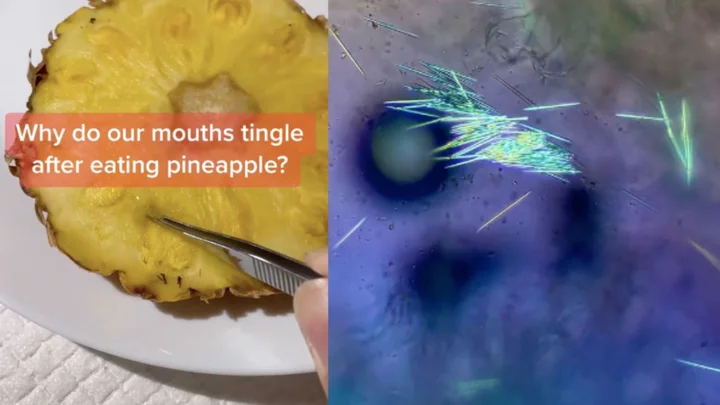
Pineapple 'needles' revelation has people questioning whether they'll eat the fruit again
A revelation about pineapples only made noticeable thanks to a TikTok account and a microscope, has people reevaluating whether they are allergic to the fruit or not. You may have noticed that whenever you've eaten a chunk of the delicious citrus fruit, you are sometimes greeted with an odd tingling sensation in your mouth. Well, if you've ever been curious about what that actually is then the TikTok account SF Microscopy is here to help. The account analyses all sorts of things under a microscope and exposes all the fascinating and dare we say worrying things that lie within everyday objects that the naked eye cannot see. One of the biggest videos on the account, with 35 million views, is about a pineapple. Sign up to our free Indy100 weekly newsletter In the caption, the person behind the account writes: "One of my favorite fruits is pineapple, but every time I eat them, my mouth tingles. I read that the fruit contains raphides! Kiwis, grapes, taro, and yams also have large amounts of these crystals. These needles serve as a defensive function against insect herbivores to deter them from eating the plant’s fruits and protect the seeds. The needles work with other chemical substances, like bromelain in the pineapple, to amplify the effects." If that sounds a bit farfetched then take a look at the video for yourself and you might find that its even more alarming than you might have imagined. @sf_microscopy One of my favorite fruits is pineapple, but every time I eat them, my mouth tingles. I read that the fruit contains raphides! Kiwis, grapes, taro, and yams also have large amounts of these crystals. These needles serve as a defensive function against insect herbivors to deter them from eating the plant’s fruits and protect the seeds. The needles work with other chemcial substances, like bromelain in the pineapple, to amplify the effects. #microscope #microbiology #underthemicroscope #microscopy #microcosmos #nature #pineapple #crystals #fyp #fypage #fypシ The fact that these needles are real has people second-guessing the feeling they experience when they eat pineapples. One person wrote: "My mouth be sore as hell after going crazy on them pineapples & kiwis." Another added: "So ummmm…I’m not allergic to pineapple????" A third said: "Makes sense that when i accidentally inhaled pineapple juice i just about died." While a fourth person said: "It’s gonna stop me i dont feel like being stabbed." Will you stop eating pineapples now that you know this? I think this writer might be willing to live in blissful, delicious ignorance. Have your say in our news democracy. Click the upvote icon at the top of the page to help raise this article through the indy100 rankings.
2023-05-27 19:20
